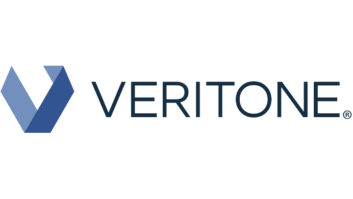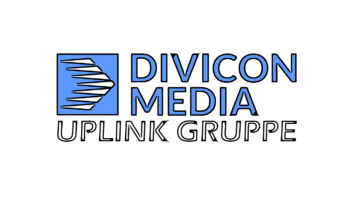This is one in a series of articles about new programmatic tools in radio and media.
Programmatic advertising is a relatively new initiative in the ad business. It’s primarily about automating the back end of sales transactions, resulting in a more efficient process and a greater amount of a station’s inventory being sold.

Early efforts to introduce programmatic to the radio industry have centered on educating radio station management and sales personnel, as well as installing the technology to make it all happen. A startup company in Newport Beach, Calif., however, is approaching programmatic from a different perspective.
Veritone Media has developed technology to understand and respond to the natural human interface of audio and video content. The underlying technology is called the Cognitive Media Platform or CMP. This cloud-based system enables near real-time analysis of audio and video streams. To date Veritone Media’s clients include Westwood One, DraftKings and Uber.
Veritone Media is a privately owned, venture-backed company. Though it is new, its founders are no strangers to radio or to the concepts that are playing out in the programmatic space. In 2002, brothers Chad and Ryan Steelberg launched dMarc Broadcasting, a radio advertising company whose solutions aimed to connect advertisers to stations through an automated advertising platform. The platform simplified the sales process, scheduling, delivery, and reporting of radio advertising, enabling advertisers to purchase and track their campaigns. dMarc was acquired by Google in 2006.
RICH DATASETS
With CMP, advertisers will be able to search every word that is monitored or recorded on any type of audio or video channel. Once the information is gathered, Veritone Media says it can track not only the mention of a product or service, but the tonality, and do it in near real time.
The CMP delivers a “very rich dataset of almost everything that is being spoken about or displayed on that medium, inclusive of every single word that is mentioned,” said President Ryan Steelberg. He said this is a deeper and more complete capture than current techniques that might be used such as closed caption or metadata typical in the market today.

Veritone refers to the generated informatics as “actionable intelligence.” This monitored content is fully searchable. “What Google does for the written word, Veritone does for audio and video,” he said. As a cloud-based platform, the system requires no user software. The company notes that it does not retain copyright or original content in the cloud; content is processed from its original location.
He said CMP has three broad applications.
“First is search and discovery. Users can search processed material for words and key phrases. A second is for internal production. A radio station may use CMP in conjunction with a program logger to automate the process of searching for clips, which may be used, for example, to create a promo for a morning show. It may also be used for podcasting. Radio stations don’t often think of chunking and repurposing content, but perhaps they should, and this technology makes that much easier.”
The third application is in advertising. In addition to searching content for ads that have run, the CMP can assist with contextual-based targeting to predict what would be the best ads to insert as live reads in programming that is ongoing.
“This is especially relevant for stations with news-sports-talk formats where there are free-ranging discussions,” said Steelberg. “Based on where the discussions are going, some ads would probably work better than others. The Cognitive Media Platform can analyze the dialogue in near real time, and dynamically make recommendations for the next break.”
Currently, Veritone Media’s CMP ingests about 10,000 hours of audio/video content per day. Within five minutes of ingestion, the material has been converted to metadata. The company recently announced that since January of 2014, its CMP technology had processed more than 1 million hours of audio and video content.

VERIFY AND IDENTIFY
Between traditional media, Web streams and outdoor advertising, most of us are exposed to thousands of ads every day. Advertisers need a way to determine which ones are working.
CMP, the company argues, is the tool that will verify and identify not only a client’s live reads and discussions about their products, but also those of their competitors.
“What used to be proprietary information is no longer,” said Steelberg. “Veritone Media’s platform delivers the same intelligence about a competitor’s creative, target demo and media consumption.”
It can also track the sentiment being expressed about a brand. Veritone believes this technology will give the advertising business a useful analytics tool to gain insights into where brands are being mentioned, and how to gain leverage when buying ads. Its dataset includes numbers of mentions, stations, programs, average audience and other metrics.
While most broadcast clients of Veritone Media will be using the CMP for the analytics that it provides, the platform has potential for customization through its open ecosystem. Programmers will be able to embed their own cognitive engines into the platform for applications such as transcription, facial recognition and sentiment extraction.
“This is particularly compelling to major advertising agencies and their parent companies,” said Steelberg. “We see that every one of them is working on gathering internal data from all their clients and trying to create proprietary tools to glean insights and analysis from the work they do for their advertisers. CMP is seen as a unique tool to bring all the third-party applications that one would need to do this correctly to the table, and do it in a way that enables fluid use on a case-by-case basis.”
The company is planning release of an Open API/Developer model early next year, and will work with one or two agencies to integrate CMP into their systems prior to release. Steelberg said that in addition to its use in broadcast media, the CMP has applications in law enforcement, politics and higher education.
How is your media company using programmatic tools? Email us to share at [email protected].












